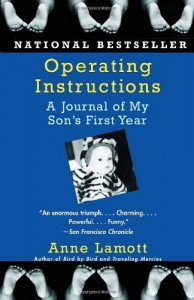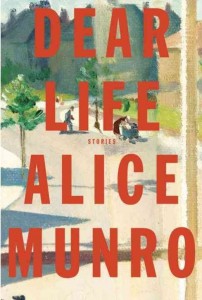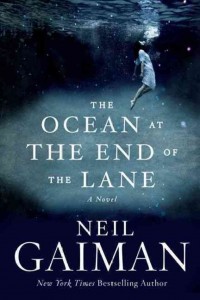Book review Monday: eight short book reviews
It’s been a while since I’ve written any book reviews here; this isn’t because I’ve stopped reading, but more because I’ve allowed myself to slip into indolence with my blogging. It’s much easier to read a book and move on to the next than to have to recall that book’s details and ruminate on its meaning. Ruminating can be so exhausting. But it seems a waste to read so many books and then not even share my opinions on them with anyone. So, as a sort of stopgap measure, here, in no particular order, are eight very brief reviews of some of the books I’ve read over the past few months. Since I read some of these in January, which was eons ago, I’ve forgotten some of the details, hence my brevity. But hopefully these short reviews will get to the heart of the matter.
- Operating Instructions: A Journal of My Son’s First Year, Anne Lamott: A slim little book in which Lamott documents her son’s first year of life, in sometimes excruciating and often funny detail. Lamott was a thirty-five year-old single woman when she gave birth to her son Sam and was by turns apprehensive, terrified, enraged, enthralled, exhausted, and overwhelmed by the experience. While the book chronicles some of the minutiae of raising an infant, Lamott also gets philosophical about life, late 1980s politics, gender, motherhood, religion, mortality, and family. While Lamott’s flights of fancy about God and angry tirades against George Bush (the first George Bush, at that) can border on the hackneyed and the dated, respectively, there’s a lot of universal stuff in here about the experience of being part of a family, and the difficulties involved with being a human grappling with unanswerable questions.

- The Stranger’s Child, Alan Hollinghurst: After reading (and loving) The Line of Beauty, I just had to get me some more Hollinghurst. Unfortunately, The Stranger’s Child was a disappointment. Following several intertwined stories spanning several generations, and somewhat centered around the characters’ connections to a young poet named Cecil Valance who died in WWI, The Stranger’s Child is a meditation on the unreliability of memory and the subjectivity of the past. Hollinghurst’s writing is, as always, spectacular. But fantastic writing is not enough to save this book, I’m sorry to say. The plot was complex and “layered,” yes, but needlessly so. The time-shifting, often done without explication or table-setting, was jarring and exhausting. The characters, many of whom had the same or similar voice and interests, became muddled together. By the middle of it, I began skimming, and I never skim. Well, almost never. I enjoyed the unreliable narrator Paul Bryant, and I think I get the point Hollinghurst was trying to make with all of this, which is that ALL narrators are unreliable, and memory is a tricky thing, and the past is not a monolith, and whatever, but could he not have done it with a more streamlined and plot-driven vehicle? I just kept waiting for something to happen, and nothing ever did.
- The UnAmericans: Stories, Molly Antopol: I read a glowing review of this book on NPR and since I love sinking my teeth into a good collection of short stories, I thought I’d give this one a whirl. Unfortunately, I came away a bit disappointed by The UnAmericans. My basic problem with the collection was not with the writing, which, sentence to sentence, was excellent. I found Antopol’s stories inconsistent in terms of character development and relatability, which meant that, while reading several of the stories, I found myself bored and disengaged, despite the marvelous descriptions of setting. There is a lot of good work in this collection. Some of the stories, like “My Grandmother Tells Me This Story,” about Eastern European Jewish refugees during World War II, are gripping and vivid. Others, though, like “Duck and Cover,” about communists in Southern California during the McCarthy area, left me cold. All of the stories feature Jewish protagonists, many of whom are struggling with questions of identity – religious, national, familial, or otherwise. These are broad questions and provide fertile ground for interesting storytelling, and sometimes, Antopol nails it. But the stories varied too widely for me to wholeheartedly recommend this book.
- Dear Life: Stories, Alice Munro: It’s hard to say much bad about Alice Munro. Part of her gift as a storyteller is her ability to take seemingly mundane situations in less-than-fascinating settings (often, rural, mid-20th century Ontario) and create compelling, emotionally rich stories. One of the most interesting things about this collection is Munro’s inclusion of four final works that “are not quite stories,” but are essays that are “autobiographical in feeling, though not, sometimes, entirely so in fact.” These four semi-fictional works form a mini-memoir at the end of the collection of stories and give a window into Munro’s own upbringing and early family life.

- Flowers in the Attic, V.C. Andrews: Somehow, despite being born in the early 1980s, I totally missed reading the 1979 classic Flowers in the Attic. I was aware of it, of course, but by the time I fully grasped that it was a “young adult” book with sexy bits in it, I was too old and world-weary to bother reading it. Then, I read this piece by Tara Ariano, one of my editors at Previously.TV, about what the book meant to her as a kid, and I decided to read it, for the first time, as an adult. As everyone in the world who has read FITA will tell you, it’s terribly written, outrageously cheesy, laughably unrealistic, and completely weird on every level. But the weirdness is kind of what works about the book. It’s so creepily bizarre that you can kind of get past the terrible writing and just enjoy the craziness. This book certainly isn’t going to win any literary accolades, but it is going to last, because it’s just the kind of macabre, taboo love story that teens (and, okay, adults) eat up. If you want to give your brain a rest and be weirded out at the same time, give FITA a go.
- The Ocean at the End of the Lane, Neil Gaiman: My husband’s youngest brother gave me this book for Christmas this year. I had never read any Gaiman before, but as soon as I got into the story, I understood why people enjoy his writing. This story is small, and quick, but it sticks with you. Told from the perspective of a man revisiting the English village where he grew up, it’s a reflection on magic, family, and the fluid interplay between childhood safety and danger. I loved Gaiman’s simple, evocative writing and the sense of magic and promise in this story.

- The People in the Trees, Hanya Yanagihara: The People in the Trees is an interesting and disturbing read. It tells the story of (the fictional) Dr. Norton Perina, a Nobel Prize winning immunologist who was arrested in 1995 for sexually abusing one of his 43 adopted children. Told from the perspective of Perina himself, as well as his trusted confidante and defender, Ronald Kubodera, the story traces Perina’s early life and career as a scientist before getting into the meat of the story, Perina’s journey in 1950 to the (fictional) Micronesian country of U’ivu, where he discovered, on one of its islands, people who had seemingly found the answer to eternal life. Perina’s subsequent handling of his discovery and his ensuing notoriety form a large part of the story, but it’s not until Perina begins to adopt children from U’ivu that things get decidedly twisted. The New York Times review can be found here.
- The Valley of Amazement, Amy Tan. I’m a huge, lifelong Amy Tan fan. The Joy Luck Club, The Kitchen God’s Wife, and The Hundred Secret Senses are among my absolute favorites, but I’ll read anything she writes. Her latest effort, The Valley of Amazement, while an impressive work of historical fiction, didn’t move me the way that some of her earlier books have. As always, Tan is an expert at capturing complicated mother-daughter relationships. But in The Valley of Amazement, the story wanders so much from the central relationships, and contains so many twists and turns (not all of which are particularly interesting) that I found myself bored and wishing it were more streamlined.
These eight aren’t the only books I’ve read over the last three months, but they’re the ones I felt like writing about, maybe because, in one way or another, they stuck with me (even the ones I didn’t care for). Have you read any of these? What did you think?

Leave a Reply